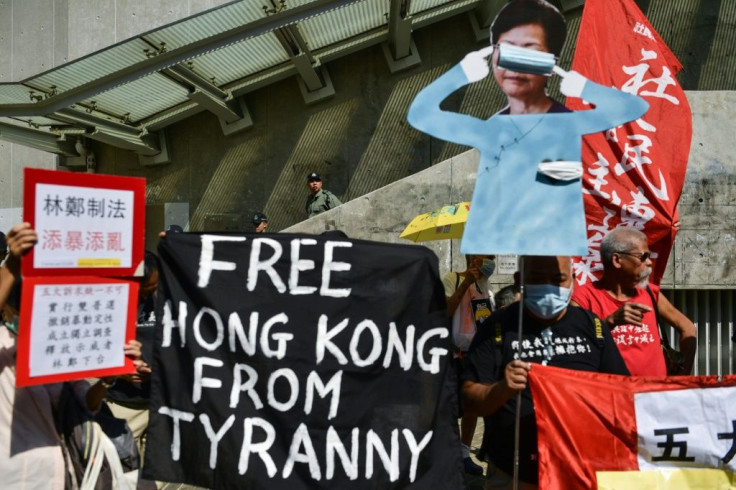Murder Suspect Who Set Off Hong Kong Protests Wants To Surrender To Taiwan

The spark that ignited the protests in Hong Kong over an unpopular extradition bill was the arrest of 20-year-old Chan Tong-kai on March 13, 2018, on a charge of murdering his girlfriend in Taiwan.
Because of the special relationship between China and Hong Kong, there is no extradition agreement to send him back to Taiwan to face the murder charges. But with his release pending, Chan has decided that he wants to voluntarily return to Taiwan in the hope that it may bring some calm to the beleaguered city.
The only crime that Chan faced in Hong Kong was a less serious charge of money laundering. Because of his good behavior, Chan’s 28-month sentence was reduced to 18 months, meaning he could be released very soon into Hong Kong where he cannot be charged with the murder.
In February of 2019 the extradition bill was proposed to the Hong Kong government that was aimed at the transfers of fugitives from Taiwan, Mainland China and Macau. They are all in a similar “relationship” with China lacking any formal extradition process.
Fearing the bill would lead to Chinese authorities snatching people with anti-Chinese political views off the streets and sending them to the mainland to face trumped-up charges and possible human rights abuses, masses of people converged to protest the bill. The June 9, 2019, march and protest drew crowds estimated to be in the hundreds of thousands of people.
Chief Executive Carrie Lam delayed the formal withdrawal of the bill until early September but by then, the protests took on a life of their own with four other demands getting added. Peaceful protests mixed with escalating violence have now lasted for over four months.
All the while Chan Tong-kai has been quietly serving his sentence on money laundering and awaiting release. For the previous six months he has been receiving weekly visits from Reverend Canon Peter Koon Ho-ming, a top Anglican priest.
The priest commented on Chan’s decision to return to Taiwan. “I have been visiting him for more than half a year now. At first, he was worried about turning himself in, but after talking to lawyers from Taiwan and with his family, he made the decision last month.” he said according to reports.
Taiwan authorities revealed late Friday night in a statement that Chief Executive Carrie Lam had received a letter from Chan Tong-kai asking her administration to make the transfer arrangements.
While calming the unrest in Hong Kong might be a noble reason to return to Taiwan, it is more than likely that Chan’s decision was made on the assumption that if he pleads guilty to murder, his sentence could be as little as 10 years. The death penalty is usually handed out to murderers and serial killers who plead not guilty and show no remorse for their actions. Chan was 19 when the murder was committed, and his youth may work in his favor as well.
© Copyright IBTimes 2024. All rights reserved.











